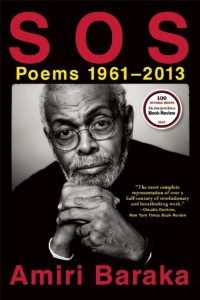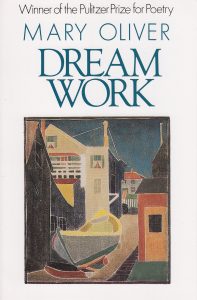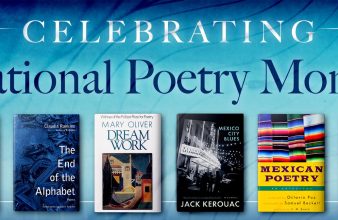News Room
- Home
- News Room
- Reading lists
- Celebrating National Poetry Month
April is National Poetry Month, and this year, we’re looking back on ten of our favorite poetry collections that we’ve published over the past century. Spanning in time from the ever-surprising modern day to the surreal lyricism of the 1950s, and reflecting on everything from the beauty of the natural world, to a heart-rending experience of grief and ultimate healing, and even to the very questions of life, death, and what comes after, each of these titles beautifully showcases the precise, wonderful, and transformative powers of the poetic form.
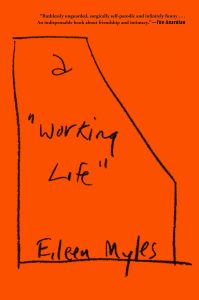 a “Working Life” by Eileen Myles
a “Working Life” by Eileen Myles
From “one of the essential voices in American poetry” (New York Times), a “Working Life” is a rich new collection of expansive, light-footed, and cheerfully foreboding poems oddly in tune with our strange and evolving present.
“a ‘Working Life’ takes you where Myles feels like, for however long they feel like it, and in whichever direction . . . The ease of Myles’s lines—the way words break in two to calibrate rhythm and speed, or how the number of words per line expand and single out to play around with tension—belie great skill. But the difference between poets isn’t just style; it’s personality, or one’s outlook on life. Myles’s is one of the most distinctive, and insightful.”—Vulture
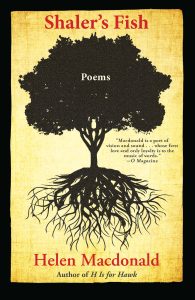 Shaler’s Fish by Helen Macdonald
Shaler’s Fish by Helen Macdonald
From the New York Times–bestselling author of H Is for Hawk, Shaler’s Fish is a robust, lyrical debut collection of poems rooted in the natural world. In robust, lyrical verse, Shaler’s Fish roams both the outer and inner landscapes of the poet’s universe, seamlessly fusing reflections on language, science, and literature, with the loamy environments of nature around her.
“Macdonald is a poet of vision and sound, oracular one moment and playful the next, whose first love and only loyalty is to the music of words.”—O, the Oprah Magazine
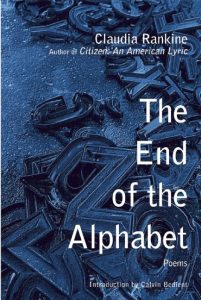 The End of the Alphabet by Claudia Rankine
The End of the Alphabet by Claudia Rankine
These poems—intrepid, obsessive, and erotic—tell the story of a woman’s attempt to reconcile despair. Beginning near the end and then traveling back to a time before the poet’s disquiet, The End of the Alphabet is a daring, powerful, and vulnerable collection about living despite one’s alienation from the self.
“Harrowing and hallucinogenic . . . Rankine’s is a singular voice . . . One must admire the risks she takes.”—Library Journal
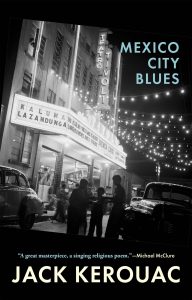 Mexico City Blues by Jack Kerouac
Mexico City Blues by Jack Kerouac
Written between 1954 and 1957, and published originally by Grove Press in 1959, Mexico City Blues is Kerouac’s most important verse work that incorporates all the elements of his theory of spontaneous composition. Memories, fantasies, dreams, and surrealistic free association are lyrically combined in the loose format inspired by jazz and the blues, creating an original and moving epic of sound, rhythm, and religion.
“What seems to me to emerge at the end is a voice of remarkable kindness and gentleness, an engaging and modest good humor and a quite genuine spiritual simplicity.”—Anthony Hecht, Hudson Review
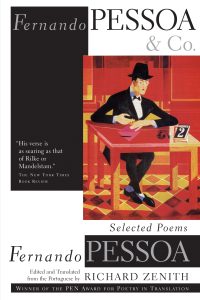 Fernando Pessoa & Co. by Fernando Pessoa
Fernando Pessoa & Co. by Fernando Pessoa
In a newly updated and expanded edition of his celebrated 1998 Fernando Pessoa & Co., translator and biographer Richard Zenith brings together Fernando Pessoa’s most memorable poetic works. From spare minimalism to revolutionary exuberance, Fernando Pessoa & Co. showcases the seminal poet’s timeless and innovative work in all of its extraordinary depth and poetic passion.
“Pessoa would be Shakespeare if all that we had of Shakespeare were the soliloquies of Hamlet, Falstaff, Othello and Lear and the sonnets. His legacy is a set of explorations, in poetic form, of what it means to inhabit a human consciousness.”—Los Angeles Times Book Review
Fusing the personal and the political in high-voltage verse, Amiri Baraka—“whose long illumination of the black experience in America was called incandescent in some quarters and incendiary in others” (New York Times)—was one of the preeminent literary innovators of the past century. Spanning over five decades, this volume comprises the fullest spectrum of his rousing, revolutionary poems, from his first collection to previously unpublished pieces composed during his final years.
“[S O S is] a signal of blunt urgency . . . this is undeniably the work of the kind of poet we will not see again; Amiri Baraka was one of the last of the 20th century’s literary lions. This momentous collection exhibits his abiding resistance to almost everything, but subversiveness.”—Terrance Hayes, Publishers Weekly
Dream Work, a collection of forty-five poems, follows both chronologically and logically Mary Oliver’s Pulitzer Prize–winning American Primitive. The depth and diversity of perceptual awareness—so steadfast and radiant in American Primitive—continue in Dream Work. She has turned her attention in these poems to the solitary and difficult labors of the spirit—to accepting the truth about one’s personal world, and to valuing the triumphs while transcending the failures of human relationships.
“Oliver’s poems are thoroughly convincing—as genuine, moving, and implausible as the first caressing breeze of spring.”—New York Times Book Review
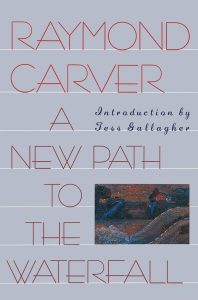 A New Path to the Waterfall by Raymond Carver
A New Path to the Waterfall by Raymond Carver
Raymond Carver, author of Where I’m Calling From, is widely considered one of the great short story writers of our time. A New Path to the Waterfall was Carver’s last book, comprised of sixty-odd poems linked by Carver with selections from other writers, and by the cumulative force of the life and death questions he poses in them. A New Path to the Waterfall is an essential book for those who admire Carver’s work, and testament to the transcendent strength of the human spirit.
“Daring, dangerous work . . . . In the end, the measure of A New Path to the Waterfall is that of Carver himself, of his courage, his grace. It is a personal triumph, an invigorating book, one that transcends death.”—David L. Ulin, Bloomsbury Review
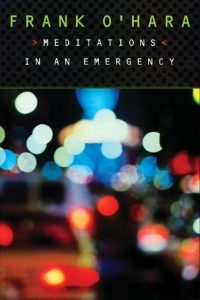 Meditations in an Emergency by Frank O’Hara
Meditations in an Emergency by Frank O’Hara
Frank O’Hara was one of the great poets of the twentieth century and, along with writers as Denise Levertov, Allen Ginsberg, Robert Creeley, and Gary Snyder, a crucial contributor to what Donald Allen termed the New American Poetry, “which, by its vitality alone, became the dominant force in the American poetic tradition.” This collection, a reissue of a volume first published by Grove Press in 1957, demonstrates beautifully the flawless rhythm underlying O’Hara’s conviction that to write poetry, indeed to live, “you just go on your nerve.”
“Moving in the way that only simple communication can be moving . . . [O’Hara’s] poems always manage a fresh start free from the dreadful posturings of the conventional verse of his generation.”—Kenneth Rexroth, New York Times Book Review
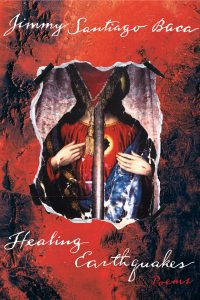 Healing Earthquakes by Jimmy Santiago Baca
Healing Earthquakes by Jimmy Santiago Baca
Combining a stunning lyrical intensity with a profound exploration of the human soul, Healing Earthquakes uses poetry to conjure a romance, from beginning to end. Throughout the relationship we are privy to the couple’s astonishing range of emotions: the anguish of loneliness, the heady rush of new love, the irritation and joys of raising children, the difficulties in truly knowing someone, and the doldrums of breakup. This is an extraordinary work from one of our finest poets.
“Jimmy Santiago Baca is a force in American poetry. Now, with Healing Earthquakes, he has accomplished its grand result in a book of brilliant passion. His words heal, inspire, and elicit the earthy response of love.”—Garrett Hongo

